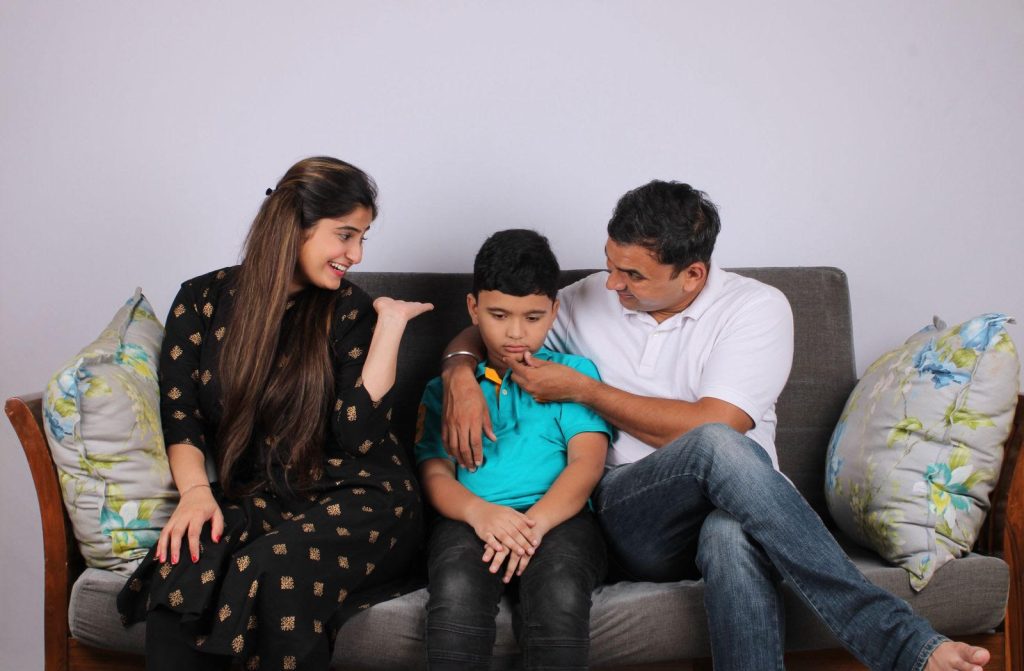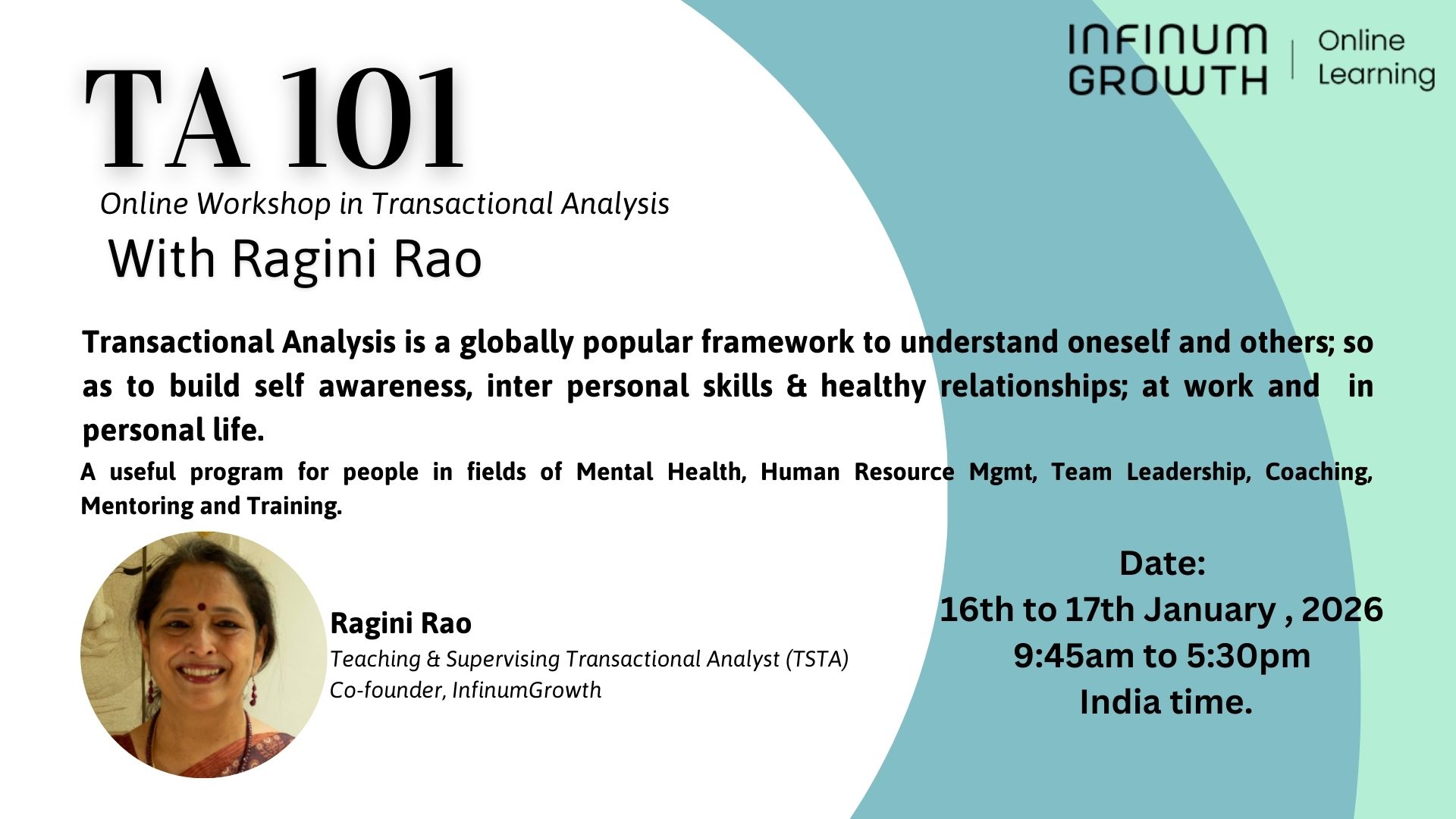”I feel so blessed,” said the ‘facilitator’. “My students love coming for my music classes. Parents are happy. Getting the children to attend the class is not a chore for them. A win-win all around.”
The students, between four to twelve years of age, exiting the various classrooms, were smiling and preoccupied with something exciting they were holding. Each class either ended or began with a special gift being presented to them. A careful ‘market study’ had revealed what the latest favourites were, for the respective age groups. These items, ranging from slime, dinosaurs, Lego to games of various kinds, were procured to lure them to the classes.
There were multiple takes on this – “So what if they were being ‘bribed’ or their ‘love for the classes’ had a hefty price tag – they were coming for the classes, weren’t they? And hopefully learning something at least. Better than not attending at all or creating a huge scene at home.”
”What values are we teaching them from such a tender age? Think of the sense of entitlement the children get. They have to be ‘pleased’ all the time to get them to do anything. Who are they doing a favour to by attending the class? And think of the expectations set? You will do something only for some transaction. Effort, hard work for the sake of learning something, gratitude for getting the opportunity are put on the back burner.
That sets the norm. The joy of being rewarded for special effort or getting something as a token of appreciation is lost to them.”
What would be your take, dear reader?
What does “Entitlement” mean?
There are two aspects to this word. Certain entitlements are rights that a person can legitimately expect. For example, the right to both physical and psychological safety, due respect and fairness in treatment.
Our main focus will be on the other aspect of entitlement. That is when a person believes it is a right and expects certain privileges or outcomes in various forms without working for them.
Many times it is at the cost of disregarding the rights and needs of others. It is also often unrealistic. Sometimes it is done insidiously and in a manipulative manner such that the receiver does not even realise it till it becomes impossible to handle.
This applies to both adults and children. The idea is to focus the spotlight on these tendencies during childhood, so as to build self awareness (could be with help from someone close or a therapist); and take necessary measures to get out of this mindset.
There is an opposite situation also. One of under-entitlement. This mindset is one where the person has low self worth, feels unworthy and unsure about asking for what he/she truly needs. There is a hesitation about expecting or deserving kindness or help; and also a hesitation in expressing views or opinions. It is as if they don’t count and they can become targets of manipulation.
We will not be discussing this in the current article.
What are some rights kids should ideally be entitled to?
- Physical safety, nutrition, healthcare and protection from danger.
- Emotional stability, safety, warmth, love and security.
- Respect for them as individuals with their own identity.
- Thoughtful support and guidance without overbearing control.
- Opportunities for education, development and growth.
- Acceptance that they will make mistakes and learn from them.
- Fairness and consistency in upbringing regardless of gender.
How unhealthy entitlement manifests during childhood
- Creating a scene or sulking when told “no” and sometimes threatening with dire consequences. ‘Try stopping me from going for the sleepover. I will run away and you will be responsible.’ In a public place a scene is created to compel parents who feel embarrassed – ‘You have to buy that video game for me right now.’
- Absence of gratitude. Dissatisfied with what they get or have and demand more. (“Is that all?” instead of “Thank you”)
- Need for immediate gratification. ‘I want the latest model of the laptop today. The ‘khatara’ I have does not suit my image.’
- Unwilling to do simple tasks or chores. ‘Why should I put away the toys? The servants are there to do that.’
- If a problem arises look for others to deal with it, refuse to share responsibilities
- Believing they are above rules that apply to everyone else
- Relationships are about getting and not giving unless it is for a purpose
- Lack of sensitivity towards others
- Overblown sense of self importance. ‘Let me go first. I don’t like waiting in queues.’
- The belief that the world is obligated to behave as they desire. Expecting praise, gifts, rewards without genuine endeavour
Why parents give in
1.Guilt – Parents who need to be away from the house for long hours might try to compensate in different ways. Parents who had very little growing up might also want to give their children whatever they missed out on and more; unconsciously encouraging entitlement.
2.Fatigue – With multiple pressures piling up, the prospect of another argument and tantrum seems too much to handle. ‘I am exhausted. Cannot handle another meltdown. Let me just give the laptop and let him watch the video. Need some peace.’
So it is easier to succumb than insist on boundaries. It avoids conflict and apparently wins the child over.
3.FOMO (fear of missing out) – Pressure from social media and peers can be overwhelming and puts parents in a quandary. What is the right path to take? For example if parents from their social circle put their children into the most expensive private school there is a feeling of, ‘I should too. My child should not be denied the best.’ Competitive parenting creates stress and constant ‘catching up’.
4. Fear of being judged – by the children as being too archaic, overly strict and unreasonable. The underlying fear could be that the children will not care for the parent.
5. Over indulgence – could also stem from an inability to decide what is enough. When the child becomes close to an obsession for the parent, the parent is always available, doing everything for the child. And this is what the child believes is normal – to be waited on hand and foot. Overprotection from discomfort, being shielded from handling setbacks or failures prevents the child from learning resilience, acceptance of the actual situation and dealing with it.
6. Inability to handle emotional blackmail by kids -There is a fear of upsetting the child. Children test boundaries and try their luck, Some are very observant and know how to get their way with tantrums, withdrawal, sulking. Social media highlights cases of extreme steps taken by kids and this may also play on the parent’s mind.
7. Constant need to prop up and ‘encourage’ the child with phrases like ‘You are amazing’, ‘That was great’, ‘You are the best’. Social media is flooded with pictures and videos of ‘awesome’ holidays and ‘poster perfect’ kids. The child gets used to praise without any real achievement and becomes dependent on external validation.
In an environment of instant gratification whether it be getting information or buying products online, patience takes a beating. Everything is instantly available and in this culture it becomes doubly difficult to instil the virtue of delayed gratification in children.
Impact of Entitlement on kids in the future when they grow up
- Compromised tenacity, perseverance, the ability to handle challenges and setbacks, rejection and disappointments
- Unreasonable expectations – facing lows in life becomes unacceptable and unfair. “This is not supposed to happen to me. I deserve happiness.“
- Relationship issues – Inability or lessened ability to empathise, compromise, adapt, be sensitive to and accommodate partners or friends. Partners often have to bear the impact of controlling behaviour, disrespect and the need to have demands met instantly. It keeps them on edge and erodes the comfort space in the relationship.
- Even as children they face challenges in retaining friends and working in teams.
- Workplace challenges – Issues with regulation and rules, teamwork and persistence. Showing gratitude is tough because whatever is received ‘is a right anyway’.
- Lowered sense of self esteem and also anxiety – Seeing others cope with difficulties in life might lead to a sense of inadequacy. Also the need to look externally for a pat on the shoulder and a word of praise builds dependency on validation from others instead of developing self confidence and assurance.
How to strike a balance while bringing up children
1.Children learn by seeing and experiencing
They learn from what is happening in their own living space. Values taught from childhood – simple practices like saying ‘thank you’ ‘please’ become second nature. Parents need to model this too.
Said a beaming grandparent, “Watch this ‘thank you’ message from my grandchild for birthday wishes I had sent.” The parent had made this possible; and it would go a long way in instilling this habit in the child.
2.Building a community connect
A community of like minded parents, doing activities together with the children, helps develop a sense of connectedness.
“Each month we meet for some activity. Kids collect old newspapers or clothes; later given to centres to make paper bags and other items. Old books, backpacks, stationery, uniforms, toys, games; and food packets too, are collected; to distribute to schools for the underprivileged. The children organise games with the underprivileged children. We then have potluck at one of our houses and spend time together.“
3.Building a sense of Responsibility, Gratitude, Humility and Compassion
At the Individual level – a parent took her child, on his birthday, to an orphanage; to share a meal with the children. Some schools take students to centres for senior living; to read to them or put up music performances. Others run evening schools for the underprivileged, where the day students help.
This teaches children to look beyond limited confines. Builds a sense of responsibility, gratitude, humility.
Likewise, spending time in the midst of nature, during childhood – visits to the countryside, parks, game parks – contribute in developing a more compassionate and appreciative human being.
4.Encouraging and Appreciating Good Work
Praising the effort and rewarding that. “I noticed how hard you worked” is better than “You’re the best.”
Do activities which do not give immediate results, but builds the appreciation of delayed gratification. It could be, for example, planting seeds and waiting for the plant to grow, while looking after it. Doing a hand craft with patience and watching it take shape.
5.Setting Boundaries
Define and set clear boundaries in how they behave and interact. Everything is not open to negotiation.
In relationships, help them understand that everything cannot be measured by how much you give and get. Empathy, caring and thinking about others needs to be modelled and taught. Explain that if the same was done to you how would you feel.
6.Encourage Problem-Solving
Allow the child to try and think of a solution. Be around, but try not to offer a solution immediately. Discuss the pros and cons of the solution thought of. It builds confidence, analytical thinking, self dependence and accountability.
A child throws a toy car in anger and breaks it. An entitled reaction would be. ‘If you had given me what I wanted, this would not have happened. Now buy me another car.’
The mother moves away, while the child throws a fit of anger. She allows some time to pass. After a while she notices the child trying to fix the car with magic glue. ‘Maybe I will fix this with glue or I will wait for it as my next birthday present.’
At school a teacher allows the students to sort out issues, while doing a group project and dividing the work amongst themselves.
The child needs to feel accepted for himself or herself, with unconditional love. This provides emotional security without the need to constantly please people to get attention and acceptance.
Help the child understand that there are things we cannot determine and there are those that we can influence and work upon. This grounds the child in reality and steers him/her away from a sense of unrealistic entitlement.
So what is the take away on healthy entitlement for a child?
–You are special, as is every other child.
–You deserve love and respect, as does every other child.
–You want to be praised, rewarded and given special things. For this you need to put in effort, have patience, perseverance and positivity.
Like this article?
Check out Sumita Banerjea’s book Script Your Life Your Way, with a large collection of articles written for InfinumGrowth, along with self work exercises. The book is available on Amazon.

Would you like to talk to an Adolescent/Parenting Counsellor/Therapist? Click here to connect .
Please do leave your comments at the bottom and do share with others if you like this article.
















A very deep and important topic. I have seen examples where the same parents create bad entitlement issues in the son by spoiling him by treating him differently from their own daughters. So that’s an issue too where parenting differs based on gender of the child. Ultimately it effects the son when he grows up
Abhishek the example you have quoted shows another aspect of entitlement. Thanks very much for your input.
Such thought provoking points explained lucidly
Smita I really appreciate your taking the time to read my articles and post your comments. Fuels my enthusiasm to write
An apt insight into the modern relationship of today’s child and a parent .Buying the space and peace by bribing the child with things that gives instant gratification and a false sense of achievement .It’s going to hamper the overall development of the child .The article is a hand book for the new age parents .